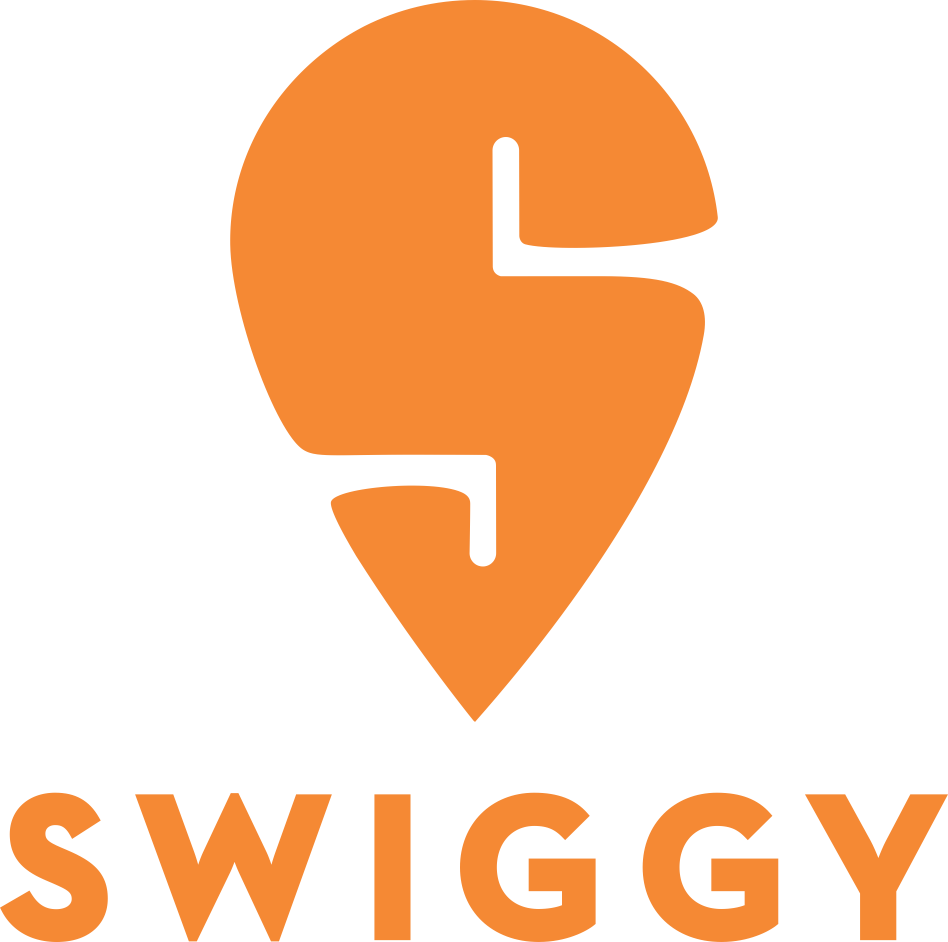
₹ 14820
₹371- ₹390
38
₹420
8

8 Nov 2024
12 Nov 2024
13 Nov 2024
Application Details
The Swiggy IPO is scheduled to open for subscription from November 6 to November 8, 2024. Each share has a face value of ₹1, with a price band ranging between ₹371 and ₹390 per share. Investors can apply in lots of 38 shares, with a minimum application amount of ₹14,820 and a maximum of ₹1,92,660 for retail investors. The total issue size is 290,446,837 shares, aggregating to ₹11,327.43 crore, comprising a fresh issue of 115,358,974 shares (₹4,499 crore) and an offer for sale of 175,087,863 shares (₹6,828.43 crore). Eligible employees are offered a discount of ₹25 per share. This IPO is a book-built issue.
Important dates include the basis of allotment on November 11, 2024, initiation of refunds and credit of shares to Demat accounts on November 12, 2024, and the listing date set for November 13, 2024.
About Swiggy Limited
Company Overview
Incorporated on December 26, 2013, Swiggy Limited is a new-age, consumer-focused technology company offering a convenient, unified platform that enables users to browse, select, order, and pay for food and household items, all accessible via a single app. Launched in 2014, the company has since become a leader in hyperlocal commerce in India, driven by its pioneering status in Food Delivery and Quick Commerce.
Comprehensive Platform and Business Units
Swiggy’s platform offers a wide range of services through five main business units:
- Food Delivery: Swiggy’s core service allows users to order food from restaurants, with deliveries facilitated by a vast network of on-demand delivery partners.
- Out-of-Home Consumption: Swiggy’s platform extends to experiences beyond the home, including restaurant reservations through Dineout and event bookings via SteppinOut.
- Quick Commerce (Instamart): Users can access an expansive selection of groceries and household goods delivered on demand through Instamart. As of September 10, 2024, Instamart operated 605 Active Dark Stores across 43 cities in India.
- Supply Chain and Distribution: Swiggy’s B2B service supports wholesalers and retailers with logistics, warehousing, and distribution solutions.
- Platform Innovation: Swiggy continually introduces new initiatives, including Swiggy Genie for product pickups and deliveries, and Swiggy Minis for hyperlocal commerce activities.
In-App Membership and Payment Solutions
Swiggy enhances user experience through its membership program, Swiggy One, which offers exclusive discounts and offers. The platform also integrates convenient in-app payment solutions like Swiggy Money (a prepaid digital wallet), Swiggy UPI, and a Swiggy-HDFC Bank credit card, providing additional benefits to members.
FAQ
IPO stands for "Initial Public Offering." It's the process through which a privately-held company becomes publicly traded by offering its shares to the general public and listing them on a stock exchange for trading. This allows the company to raise capital from investors and grants individuals and institutions the opportunity to invest in and own a portion of the company.
The life cycle of an IPO, or Initial Public Offering, begins with a company's decision to go public. It involves hiring underwriters, registering with regulatory authorities, determining the IPO price, marketing to investors, and the subscription period where investors place orders for shares. After allocation and listing, shares become publicly tradable, and the company enters the secondary market. Ongoing reporting and corporate governance are crucial as the company continues to operate as a publicly-traded entity. The IPO aims to raise capital for growth and provides investors with opportunities to trade shares in the company.
An IPO (Initial Public Offering) is when a private company goes public by selling shares to the public. Investors buy these shares, giving them ownership in the company. It's a way for companies to raise capital and expand. The process involves underwriters, regulatory filings, setting the IPO price, and marketing to investors. After the IPO, shares can be traded on a stock exchange. IPOs offer opportunities and risks, so investors should research and consider carefully.
"Upcoming IPOs" refers to initial public offerings that have been announced by private companies but have not yet occurred. These are companies that plan to go public in the near future by issuing shares to the public and listing them on a stock exchange. Investors often keep an eye on upcoming IPOs as they represent opportunities to invest in companies at their early stages of public trading, potentially capturing growth potential. These offerings are typically accompanied by significant media and investor attention as they approach their launch dates.
 Download
Download